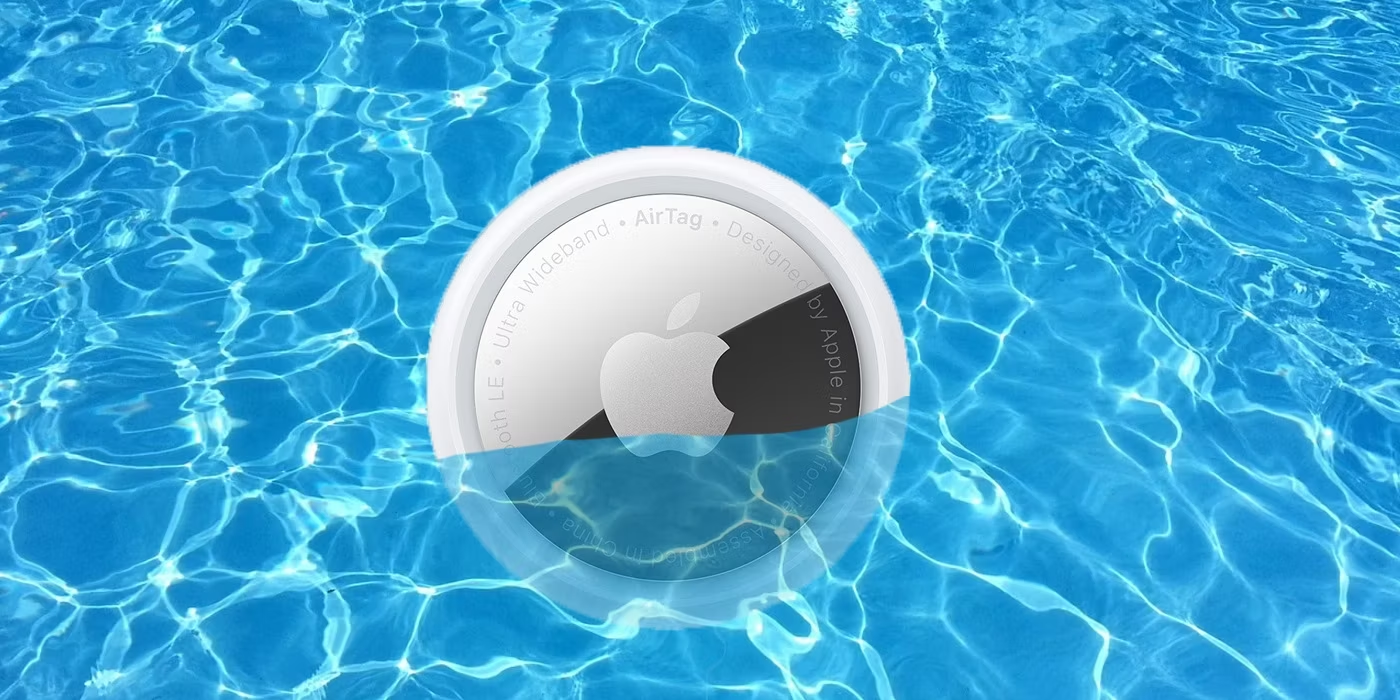Apple’s AirTags have revolutionized how we track our belongings, but their water resistance capabilities are a crucial consideration, especially in scenarios where water exposure is likely. Let’s delve into the world of AirTag water resistance to understand what it means and how to handle situations where your AirTag encounters water.
Understanding AirTag’s Water Resistance: An IP Rating Breakdown
AirTags are rated IP67, a standard that provides insights into their ability to withstand dust and water. Here’s what the IP67 rating signifies:
- Dustproof (IP6): The “6” indicates the highest level of protection against dust ingress. AirTags are effectively sealed to prevent dust from entering.
- Water Resistant (IPX7): The “7” denotes the level of water resistance. AirTags can withstand submersion in water up to 1 meter (about 3.3 feet) deep for up to 30 minutes.
Important Caveats: Water Resistance Isn’t Waterproof
While AirTags are designed to handle some water exposure, it’s essential to recognize the limitations:
- Depth and Duration: The IP67 rating specifies freshwater submersion under controlled conditions. Exceeding the rated depth or duration may compromise the AirTag’s integrity.
- Pressure Considerations: Deeper water exerts more pressure, potentially breaching the seals despite the IP67 rating.
- Chemical Exposure: Chlorine in pools or salt in seawater can accelerate corrosion, posing a risk to the AirTag’s internal components.

AirTag Encounters Water: What to Do?
If your AirTag gets wet, prompt action can mitigate potential damage:
- Retrieve Quickly: Remove the AirTag from water promptly to minimize exposure.
- Dry Thoroughly: Gently pat the AirTag dry with a soft, clean cloth. Avoid using heat sources like hairdryers, as these can damage internal components.
- Let it Air Dry: Allow the AirTag to dry naturally for several hours before reattaching it to your belongings or using it again.
Signs of Water Damage: What to Watch For
Keep an eye out for these indicators of potential water damage after your AirTag encounters moisture:
- Corrosion: Rust or discoloration on the metal components of the AirTag.
- Audio Issues: Muffled or distorted sound from the AirTag’s built-in speaker.
- Connectivity Problems: Difficulty pairing the AirTag with your iPhone or persistent disconnection issues.
Contact Apple Support if in Doubt
If you suspect water damage or notice any signs of malfunction after your AirTag has been exposed to water, contact Apple Support for assistance. They can provide guidance on potential repair or replacement options.
Tips for Protecting Your AirTag from Water
To safeguard your AirTag against water exposure:
- Strategic Attachment: Avoid attaching the AirTag to items likely to be submerged or frequently exposed to water, such as swim gear or beach bags.
- Consider a Water-Resistant Case: Invest in a protective case designed to shield the AirTag from moisture during activities near water.
- Careful Cleaning: While AirTags are splash-proof, avoid directly spraying them with water when cleaning or rinsing.
The Final Word: AirTags and Water – A Balanced Approach
AirTags offer invaluable convenience for tracking belongings, but they aren’t impervious to water damage. Understanding their IP67 rating and following proper care guidelines can help maintain their reliability over time. With a mindful approach to water exposure and proactive protection measures, your AirTag can continue to serve as a dependable companion in tracking your valuables, even in environments where moisture is present.
Remember, a bit of precaution can go a long way in ensuring your AirTag remains effective and functional throughout its lifespan.
















Add Comment